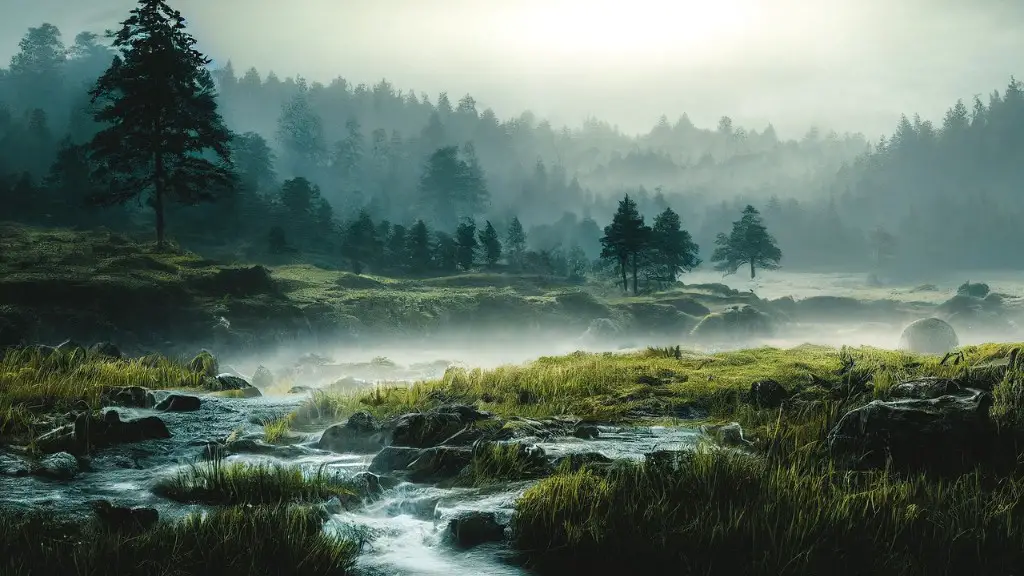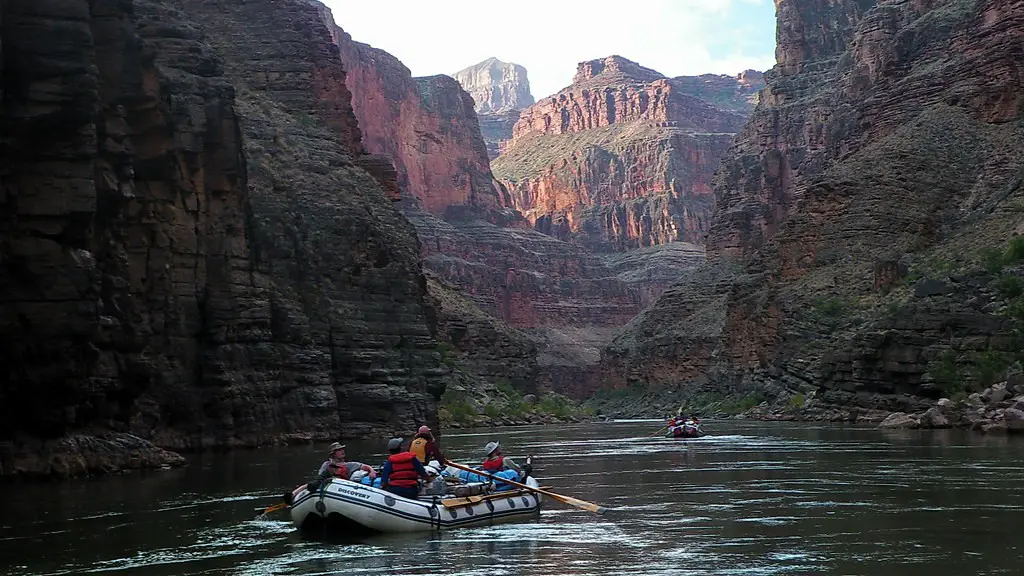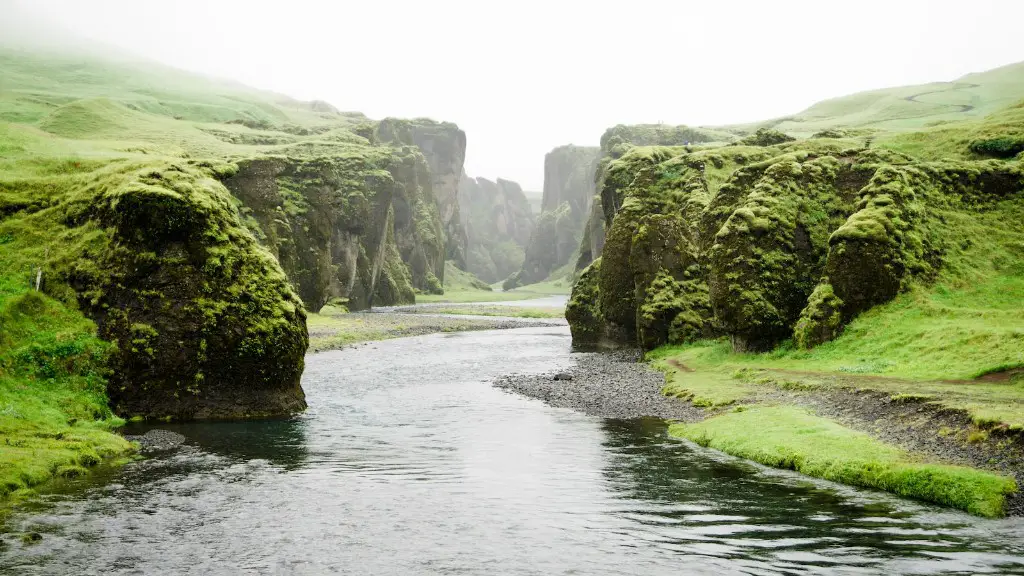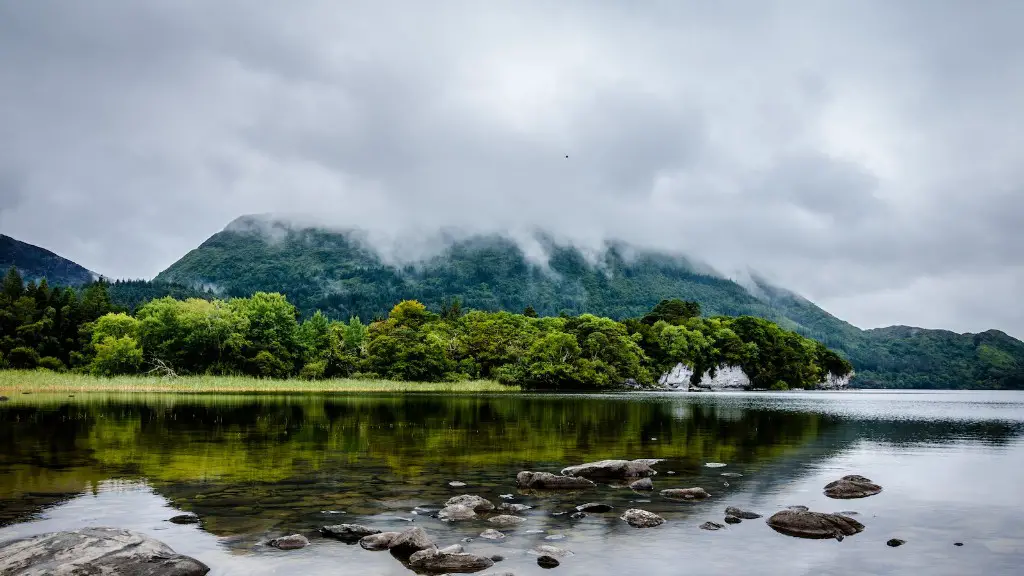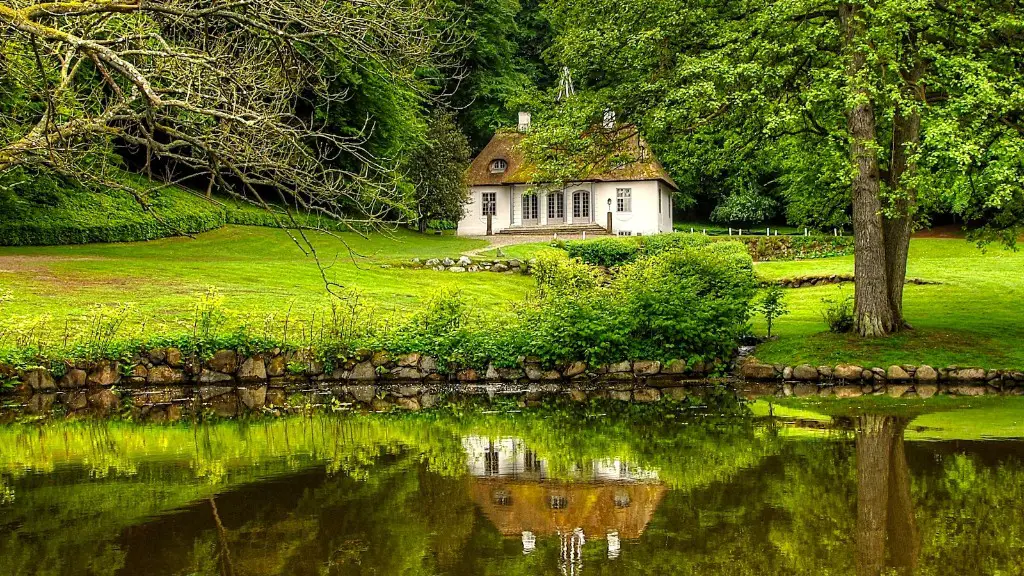Recreation
The Mississippi River has long been an important transportation and commerce corridor, but it is increasingly being used for recreational activities too. From fishing to boating to camping, the river offers a variety of recreational activities for anyone looking for a way to escape from the city. Fisherman flock to the banks of the Mississippi for some of the best bass fishing in the country. People like to go boating on the river, either in boats or kayaks and canoes, to take in its abundant wildlife and magnificent scenery. People also take advantage of the river’s natural beauty and go camping along its banks.
For those who don’t want to take on the more adventurous activities, there are a number of sightseeing cruises that take visitors along the Mississippi. During these cruises, visitors are able to view the magnificent landscape of the Mississippi, as well as get a taste of some of the rich history associated with its many towns and cities. There is also a vibrant river festival scene along the Mississippi featuring performances from some of the most acclaimed musicians, artists and culinary. It’s easy for travelers to plan their own voyage down the Mississippi, which can be just as exciting and unforgettable as any other vacation.
Environmental Preservation
The Mississippi River serves an important role in environmental preservation. The river is the home to several species of fish, birds and other wildlife. It’s also essential to keeping the Midwestern eco-system healthy. It provides a source of clean and fresh water to a large area, and serves as a habitat for a variety of aquatic species. The presence of the river also prevents flooding and soil erosion.
In recent years, the Mississippi River has been subject to pollution from industrial waste, agricultural runoff and other sources. To combat this, many conservation groups have come together to protect and restore the river. These groups have pushed for the adoption of tighter regulations and policies to reduce pollution from both sides of the river. Additionally, efforts have been made to restore wetlands and fish habitats in the region, which provide breeding and nesting grounds for many species.
Agriculture
Agriculture is another prominent use of the Mississippi River. The river has been utilized a source of irrigation and water resources for farmers on both sides of the river. It not only provides steady and reliable water sources, but also important nutrients and minerals. The ecological richness of the Mississippi River is essential for the health of many crops, and farmers rely on it to provide a variety of essential resources.
In addition, many farmers use the river to transport their goods. While transportation by water has significantly decreased since the days of the steamboats, there are still some farmers that rely on it for transportation. In particular, many farmers are taking advantage of the locks and dams along the river in order to move large shipments of goods. However, with the rise of bigger ships and increased traffic on the river, it is becoming harder for smaller “mom and pop” farms to transport their goods.
Commerce
The Mississippi River is an important corridor for commerce, and has served this role for centuries. The river has historically been used by traders and merchants, as well as by Native Americans, who used the river to transport goods between tribes. Today, the river is used to transport a variety of goods, including timber, agricultural products, manufactured goods and oil. The ports along the Mississippi are essential for trading and shipping these goods around the world.
The Mississippi River has also been an important transportation corridor for people. From the days of the steamboats during the 19th century to today, the river has been used to move people and goods up and down the river. While the river is not as widely used as it once was, it is still an important transportation link for those living in the region.
Tourism
The Mississippi River has become an increasingly popular tourist destination. Its distinctive landscape and unique geography attract thousands of visitors each year. There are a variety of attractions along the river, from historical sites to parks and other recreational activities. Visitors also have the opportunity to experience the unique culture associated with river towns all along the river.
Travelers have the opportunity to explore the natural beauty of the Mississippi. There are a number of scenic drives and trails that take visitors to some of the most magnificent views. In addition, visitors can take advantage of the river’s abundance of wildlife and take part in some of the local activities, such as fishing and hunting. With so much to offer visitors, the Mississippi River is sure to be an enjoyable and memorable experience.
Industrialisation
The Mississippi River has been a key part of industrialisation in America. Since the 19th century, the river has been used to transport goods and resources to and from industrial areas. The river’s extensive network of locks and dams make it easier for goods to be transported upstream and downstream. This has made it easier for cities to access resources and goods, and has helped support manufacturing and other industries along the river.
The Mississippi River has also been a key part of the growth of the mining industry in the United States. Many of the largest mining operations in the country have made use of the river to transport their products. The river has seen an increase in barge traffic as well, as many companies transport materials from the Midwest to the East Coast.
Hydroelectric Power
The Mississippi River is used to generate hydroelectric power. Due to its great size and volume of water, it is an ideal source of power. There are several dams along the river, which are used to generate electricity. These dams produce power that is then sent to the energy grids across the Midwest and help meet the growing energy demands of the region.
Because of the great power generated from the dams, the Mississippi River has become a hub for renewable energy. Many of the dams are being updated to generate more power with greater efficiency. This helps to both reduce pollution and conserve resources. Additionally, there are a number of initiatives underway to make use of the Mississippi River for other forms of renewable energy, such as solar and wind power.
Wildlife Habitat
The river is an important wildlife habitat, providing a place for numerous species to live and breed. The lush wetlands that line the banks of the Mississippi provide an ideal environment for a wide range of birds, reptiles, fish and more. These species use the Mississippi River to move up and down the river, and to access the larger stretch of habitat that is available.
Additionally, many of the fish species that use the river as a breeding ground have been declining due to the fragmentation caused by human activities and the presence of dams. These activities can significantly reduce the biodiveristy of the river, and efforts are underway to protect these species and restore the area’s natural habitats.
